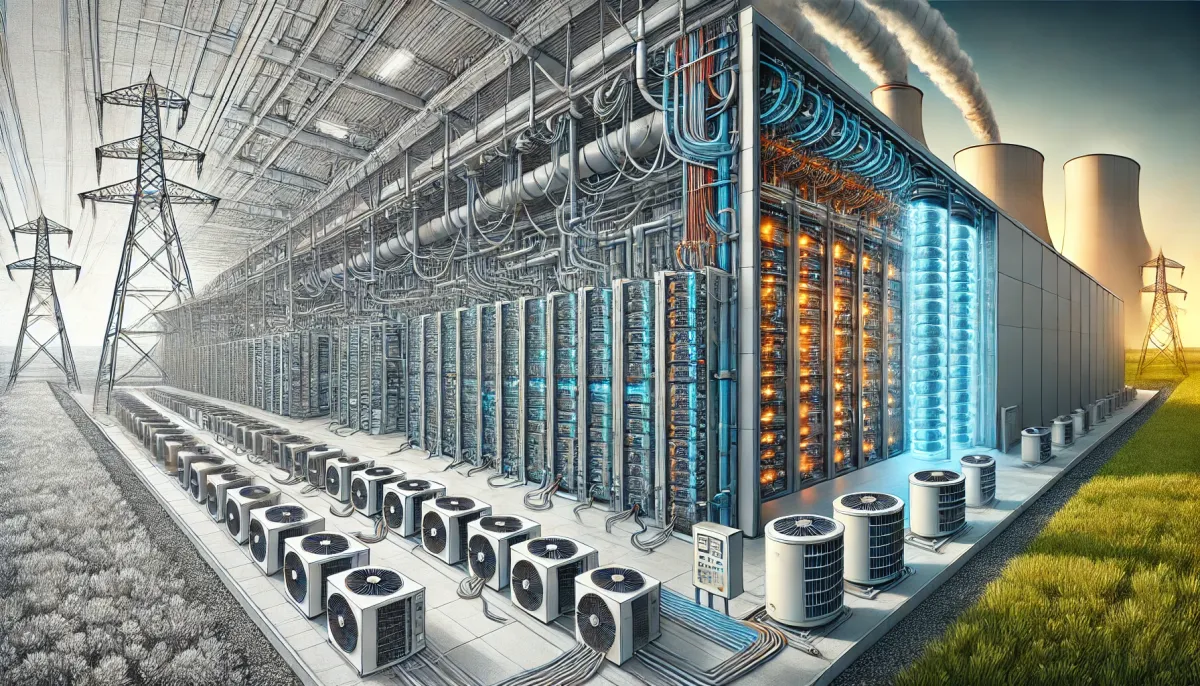Lawmakers Look To Boost Electricity Grid Ahead of AI Surge
Electricity grid needs strengthening to maintain economic growth and utilize AI, policymakers and expert witnesses say
Joel Leighton

WASHINGTON, June 4, 2024 – Policymakers today called for the strengthening of the nation’s electricity grid in order to keep up with the growing energy needs of Big Tech’s Artificial Intelligence push and stay ahead of innovation in China.
The lawmakers spoke out Tuesday at a House hearing by the Subcommittee on Energy, Climate, & Grid Security in advance of testimony from witnesses that urged regulatory reform and energy diversification to drive growth in the energy sector.
“We should be striving to assure our innovators can provide a more prosperous future for all Americans and help secure our energy and technological leadership for the next century,” said House Energy and Commerce Committee Chair Cathy McMorris Rodgers, R-Wash., in her opening statement.
 Broadband BreakfastBroadband Breakfast
Broadband BreakfastBroadband Breakfast
The hearing at times focused on the ability of AI to drive economic growth if the energy sector is free to supply critical electrical power in the quantities required.
AI technology has the potential to ignite greater economic growth, but it also depends on access to large energy-consuming data centers to function. According to Goldman Sachs, AI may increase global labor productivity by 1.4 percent and global GDP by 7 percent over the next 10 years.
In his opening statement, Subcommittee Chairman Jeff Duncan, R-S.C., emphasized the national interest in achieving AI dominance underpinned by strong energy development.
“Data centers and AI are powerful tools that give America an edge. To stay ahead of our adversaries and competitors, we must keep this edge,” Duncan said.
Both Rodgers and Duncan pointed to China as America’s chief technological rival in the global marketplace.
“If we fail, China will control our future. We cannot let that happen,” Rodgers said.
In his testimony, Tom Hassenboehler, Chair of the Advisory Committee at the Electricity Customer Alliance, stressed the national security incentive to ensure America develops “home grown AI” in the near future.
"We need a national urgency to establish the electric infrastructure that can power an AI-enabled future,” Hassenboehler said.
Hassenboehler said China invested $165 billion in its energy grid in 2022, compared to the less than $33 billion invested in the U.S.
According to estimates cited by Duncan, electricity demands may grow by 5% each year, and could grow up to 20% in some areas.
This demand will not be adequately met, according to Duncan, because the electricity grid is prone to blackouts and disruptions.
Duncan argued that this stems from a premature retirement of resources like coal, natural gas, and nuclear power in addition to overreliance on inconsistent renewable energy.
Philip J. Dion, Vice President at the Edison Electric Institute, in his testimony echoed concerns about reliance on unreliable energy sources
“We have to get really serious about this,” Dion said. “At the end of the day, if [an energy source] is not commercially viable… and if it doesn’t do what it’s supposed to do, then it won’t happen.”
Dion stated he supports obtaining energy from various sources, but he said there must be access to reliable energy sources in case others prove unreliable.
Melissa Lott, Professor at the Climate School at Columbia University, said in her testimony that renewables are perfectly viable to maintain energy demand, but will have to be supplemented by storage energy and firm dispatchable power.
Some witnesses agreed that flawed regulation has been an obstacle in developing energy infrastructure, saying there is a need for faster and more coherent ways to permit infrastructure development.
Hassenboehler warned that economic drivers that rely on electricity access will ultimately move to places with efficient permitting, easy interconnection, and innovation-friendly markets. Optimizing these conditions must be a national priority or the nation risks losing innovators to China, he said.









Member discussion